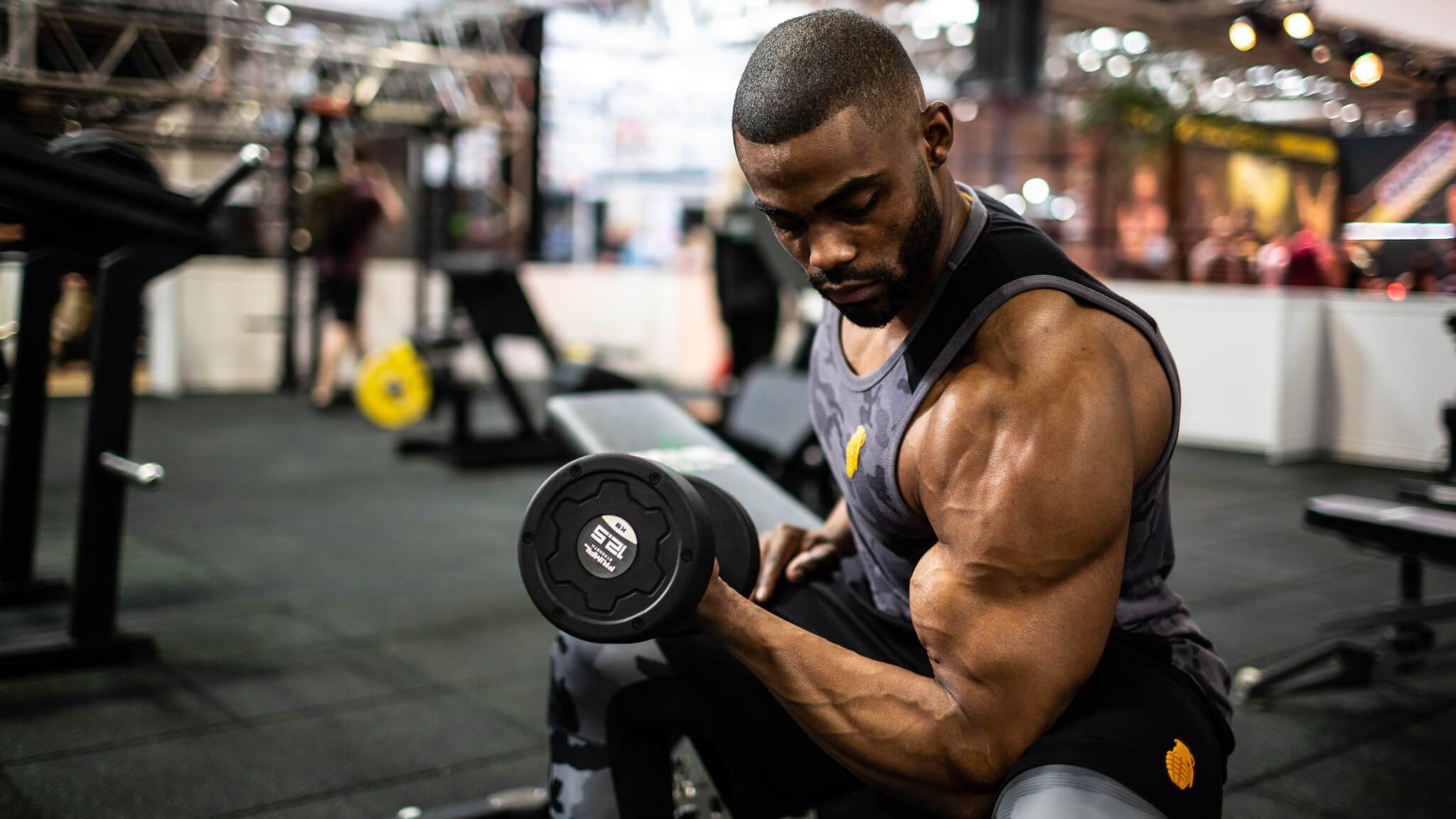Ah, the dreaded plateau – we’ve all been there. No matter how many gym sessions you squeeze into your week or how on point your meal prep is, if your training’s hit a bit of a brick wall, it can be hard to power through it.
If you want to know how to increase stamina and strength or simply want to be able to push yourself past one measly pull up (surely, not too much to ask?!), have a read of Grenade® ambassador and fitness coach Adam Parr’s four reasons why you’re not getting stronger and how you can see the light at the end of the plateau-tunnel.
1. You’re not ready to get strong yet
"Many clients who walk into the gym on day one are not in a position to start getting stronger. They simply don’t have the flexibility, mobility or neurological co-ordination to start performing compound lifts to start building strength. Office workers often have offensively tight hip flexors, no glute activation and a very poor range of motion overhead (no offence). Is this client ready to start a barbell program of Olympic lifts? No. You will only be loading up dysfunctions and making them worse.
Phase one of any program should be to activate muscles and improve their mobility. Spend 6-8 weeks doing this ‘boring’ stuff and then you’ll be in a far better position to start a program. You’re never going to build strength if you can’t perform squats, deadlifts or overhead pressing variations due to lack of flexibility and mobility.
2. You're too impatient
Again, this one is so common. Someone will start on a new training program, e.g. German Volume Training (which in a nutshell involves doing 10 sets of 10 reps on a compound lift e.g. squats with a short rest period in between). They will continue this program for, say, 3-4 weeks and then hear their mate talking about another program or training protocol and start following that. You need to be patient and actually stick to programs for around 10-12 weeks to give them a chance of actually working.
People are too impatient and I think what makes it worse nowadays is that there is so much information out there, it actually confuses people more. You only have to load Facebook or Instagram up and someone will be preaching about their way of training and how it’s the best. Anyone who presents something with enough passion can be convincing enough to change someone’s mind.

3. You're always testing your strength, not building it
This is a huge factor and I see it all of the time. You could call it “ego-lifting.” You will find people constantly trying to lift the most weight as physically possible, every week. For example, with squats, if someone’s max lift is 100kg, the best way to get stronger is to build strength lifting at 80-90% of their max ie. 80kg for 5 sets of 5 reps or 85kg for 5 sets of 4 reps or 90kg for 3 sets of 3 reps etc.
You need to be patient and think of the bigger picture, build strength over time - it doesn’t happen overnight. True strength can take years to build.
This may sound boring to some. It’s much more exciting and makes for a better gym video to go all out and try and lift 100kg. I’m not saying never test your strength, it’s good to know if you’re getting stronger, but there’s no need to do it every week.
You will find many exceptionally strong athletes who never really test their 1 rep max, unless say in a competition or something similar. This means they will probably go years without ever failing a lift, but the average ‘gym bro’ will load that bar up as heavy as possible every week and constantly have their training partner rescue them from a near death experience.
4. You're wasting time on stuff that doesn't matter
Program design is a huge factor in getting strong. If your program is designed around sitting on a machine, for example, tricep rope pushdowns, and lying on your back doing crunches, then your strength is never going to progress.
To get stronger, you need to invest time into exercises that have bigger “bang for their buck” - think multi-joint compound lifts. The program doesn’t have to be fancy, it just has to be effective and I am a big believer in keeping things simple.
Then, you need to start training these movements more frequently. Remember, frequency is key in getting stronger. Want to improve your squat? Then you’re going to need to squat 2-3 times per week. Just training one muscle group per session, per week is very 1992. Things have progressed since then and people are getting stronger and stronger, so make sure you don’t get left behind."

If, like us, this has got you even more motivated to smash that PB then why not visit Adam Parr’s Instagram for more of his tips and advice. You can also head over to our blog where you’ll find even more training info; Want something to train towards? Find out which runs we recommend you sign up for this year. Or if you’re looking to lose body fat fast, read our top 5 fat burning exercises and get ready to feel the burn!




